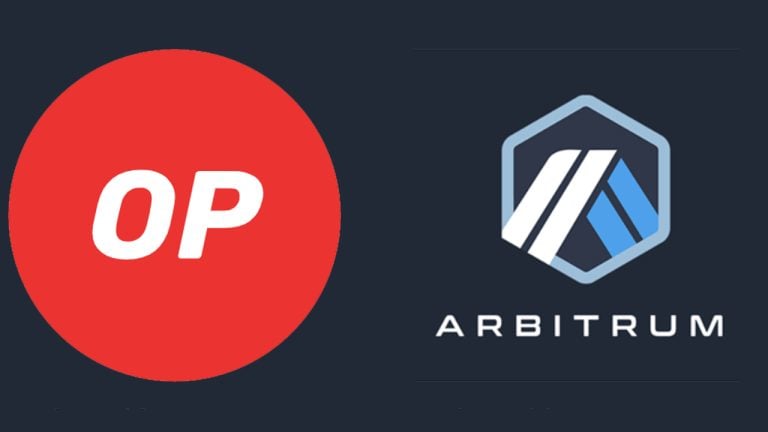 According to the Montenegro-based newspaper Vijesti, Do Kwon, the co-founder of Terraform Labs, also known as Kwon Do-hyung, is appealing the detention extension ordered by a Montenegrin court. Kwon was arrested on March 23, 2023, after being caught at Podgorica Airport in Montenegro while traveling with fraudulent identification documents. Report Says Kwon’s Legal Representation Aims […]
According to the Montenegro-based newspaper Vijesti, Do Kwon, the co-founder of Terraform Labs, also known as Kwon Do-hyung, is appealing the detention extension ordered by a Montenegrin court. Kwon was arrested on March 23, 2023, after being caught at Podgorica Airport in Montenegro while traveling with fraudulent identification documents. Report Says Kwon’s Legal Representation Aims […]
Cointelegraph sat down with activist and cybersecurity expert Chelsea Manning to discuss how blockchain technology can combat challenges associated with artificial intelligence.
Artificial intelligence (AI) has become a hot topic following the launch of ChatGPT, an AI chatbot created by research company OpenAI. Yet, while ChatGPT has the potential to write blogs and create crypto trading bots, some worry that AI could be harmful.
A survey conducted by sales platform Tidio found that 69% of college graduates believe AI could take their job or make it irrelevant in the coming years. Others have pointed out that the rise of AI will make it increasingly challenging to verify accurate information versus fake news generated by artificial intelligence.
For example, Chelsea Manning — an activist, security consultant for decentralized privacy platform Nym and former army intelligence analyst — told Cointelegraph that information verification would become a fundamental problem as AI is integrated into society. Manning told Cointelegraph about how blockchain technology can help combat AI challenges during an exclusive interview at South by Southwest 2023.
Cointelegraph: Why is the rise of AI concerning, and how can blockchain technology combat these concerns?
Chelsea Manning: The actual teachings of AI have been going on for a long time, yet as surveillance in AI becomes more efficient, it will reduce the effectiveness of virtual private networks and other circuits from protecting user data.
Another danger associated with AI and deep fakes is that these elements will eventually become so convincing that many of these instances will end up in a courtroom setting. For instance, there will be situations in the future where individuals will have to forensically verify to a court if something was generated by AI.
We can use blockchain technology to create a decentralized list of where information is coming from, who is producing it and where it was created. This can then be verified on a distributed ledger to prove that a particular event historically occurred, resulting in less dispute.
For instance, someone could take a photograph and then place that metadata on a ledger for verification. If someone tries to dispute that, they can go to the ledger and view the cryptographic signature for verification to see that a particular event occurred.
CT: Do you think we will see more companies evolve that will use cryptography to combat AI challenges?
CM: Yes — since verification is going to be a fundamental problem that arises between society’s exposure to products or surveillance that leverage AI. One way to challenge this is through cryptography, which is going to be fundamental.

I also believe that a great battle within the technology space over the next decade is going to be this issue of verification and knowing if the information we are receiving is accurate. We are running the very real risk of having our entire reality exposed through our phones or televisions and other places online. Although this is a fundamental way to interact with the world, this information will increasingly not be accurate, yet it will be convincing. I believe there are solutions to these problems, and with some foresight and planning, these doomsday scenarios can be navigated.
CT: You also have strong views on taking an infrastructure approach when it comes to ensuring privacy and security. Can you explain what this means?
CM: One of the most frustrating aspects of developing hardware technology is ensuring that the hardware itself is secure. This is why hardware developers need to focus intensively on supply chain matters — who is developing the technology, who is designing it, etc.
I also believe in the added benefit of an open-source architecture, as these standards are common and universal. I’ve been looking at open-source architectures for designing and developing secure hardware technology for Nym. For example, RISC-V is open source architecture developed at the University of California, Berkeley. RISC-V was designed to grow over time as a standard that doesn’t require any intellectual property (IP). Users can build an IP based on RISC-V, but the architecture itself is available to anyone without requiring a fee.
CT: What are your thoughts on cryptocurrency?
CM: I was very interested in Bitcoin when the white paper came out, but I didn’t necessarily view tokens as being assets or the value behind blockchain technology. I was quite surprised and struck by how readily people were to view proof-of-work certificates as being something that they would buy, sell and speculate on.
This is not necessarily my interest, as I don’t play with speculative assets in general. But from a purely academic sense, I find the technology fascinating. I think cryptocurrency is still a proof-of-concept for what is possible down the line with blockchain technology, but not necessarily ripe and ready to change the world.
CT: Recently, we saw Silicon Valley Bank overtaken by regulators. How do you think this will impact the tech industry as a whole?
CM: This is a seismic event and it goes back to my skepticism of speculative assets in general. This shows that we are still at the whims of the economy, both with traditional banks and with token assets.
The Federal Reserve System and regulators are all interconnected, so it doesn’t surprise me that as inflation has been high, and as the Federal Reserve has tried to curtail the amount of currency flowing, we have seen a number of stressors on more speculative and risky ventures. We are now seeing the effects of that.
But out of every one of these cycles, there has been innovation. If anything, operating in an environment where there is less cash available forces people into a position where they have to innovate more in order to survive. I think this will be an interesting time for the technology industry. It will slow down startups for sure, but I think that existing startups that are able to survive this will be the ones to look out for the most over the next 10 years.
 According to statistics recorded this week on Tuesday and Wednesday, the layer two scaling project Arbitrum’s transaction count has surpassed Ethereum’s. On Wednesday, Arbitrum processed 1,090,510 transactions, compared to Ethereum’s 1,080,839 transfer count. L2 Scaling Solution Arbitrum’s Daily Transfers Skyrocket Layer two (L2) scaling networks have become popular over the last two years as secondary […]
According to statistics recorded this week on Tuesday and Wednesday, the layer two scaling project Arbitrum’s transaction count has surpassed Ethereum’s. On Wednesday, Arbitrum processed 1,090,510 transactions, compared to Ethereum’s 1,080,839 transfer count. L2 Scaling Solution Arbitrum’s Daily Transfers Skyrocket Layer two (L2) scaling networks have become popular over the last two years as secondary […] Non-fungible token (NFT) assets have existed since at least 2014, but interest in them began to rise in January 2021, according to Google Trends data. Approximately one year later, the search term “NFT” reached its highest score on Google Trends. During that time the top five NFT collections, in terms of all-time sales volume, have […]
Non-fungible token (NFT) assets have existed since at least 2014, but interest in them began to rise in January 2021, according to Google Trends data. Approximately one year later, the search term “NFT” reached its highest score on Google Trends. During that time the top five NFT collections, in terms of all-time sales volume, have […] Since The Merge, Ethereum’s onchain fees have been considerably lower. However, combined transaction volume on layer two (L2) chains Arbitrum and Optimism has outpaced Ethereum’s onchain transaction output. On Saturday, Jan. 14, 2023, Ethereum processed 1.10 million onchain transactions, while combined transactions on Arbitrum and Optimism reached 1.32 million for the same day. Rise of […]
Since The Merge, Ethereum’s onchain fees have been considerably lower. However, combined transaction volume on layer two (L2) chains Arbitrum and Optimism has outpaced Ethereum’s onchain transaction output. On Saturday, Jan. 14, 2023, Ethereum processed 1.10 million onchain transactions, while combined transactions on Arbitrum and Optimism reached 1.32 million for the same day. Rise of […] Cryptocurrency exchange Bybit has announced upcoming changes to its know-your-customer (KYC) policy that will limit certain operations for unverified customers. The stricter requirements concern coin purchases with fiat money, NFT transactions, and withdrawal limits. Bybit to Limit Services for Traders Who Have Not Passed Identity Verification Crypto exchange Bybit will restrict some services that are […]
Cryptocurrency exchange Bybit has announced upcoming changes to its know-your-customer (KYC) policy that will limit certain operations for unverified customers. The stricter requirements concern coin purchases with fiat money, NFT transactions, and withdrawal limits. Bybit to Limit Services for Traders Who Have Not Passed Identity Verification Crypto exchange Bybit will restrict some services that are […]
Blockchain combined with decentralized storage could ensure data preservation and anonymity when reporting war crimes.
Human rights investigators appointed by the United Nations (UN) have confirmed war crimes have been committed by Russian forces in Ukraine. A report developed by the Independent International Commission of Inquiry on Ukraine was created in March 2022 to provide a framework for UN human rights investigators to report war crimes in the region.
Erik Møse, chair for the Independent International Commission of Inquiry on Ukraine, stated in the UN’s article that “investigators visited 27 towns and settlements and interviewed more than 150 victims and witnesses.” Møse also noted that “sites of destruction, graves, places of detention and torture, as well as remnants of weapons,” were inspected.
While the report developed by the commission has allowed UN investigators to document war crimes in Ukraine, tools and protocols are still needed to enable individuals to accurately and securely report these acts. Additionally, the need to preserve war crime evidence has become critical as the War in Ukraine enters its seventh month.
Given these challenges, industry experts believe that blockchain technology has the potential to solve many of the issues faced by individuals and organizations documenting war crimes. For example, Jaya Klara Brekke, chief strategy officer at Nym — a platform powered by the Cosmos blockchain that protects the privacy of various applications — told Cointelegraph that Nym is developing a tool known as AnonDrop that will allow users to securely and anonymously upload data. She said:
“The intention is for AnonDrop to become a tool that democratizes the gathering of evidence that can be used to pursue human rights cases. In the current climate in Ukraine, this would be particularly important for the purpose of securely documenting and sharing evidence of war crimes anonymously.”
“The core technology of Nym is a mixnet, which takes data from ordinary users and mixes it together using encryption to make everything look identical. It protects against people watching the network, along with metadata surveillance and IP tracing,” she elaborated. While Nym provides an anonymity layer to allow users to transmit data without revealing who they are, information then gets stored on the decentralized storage network, Filecoin.
Will Scott, a software engineer at Protocol Labs — a company working with Filecoin on its decentralized storage solution — told Cointelegraph that some of humanity’s most important information is stored on Filecoin to ensure that data remains publicly available.
Recent: Are decentralized digital identities the future or just a niche use case?
A blockchain network combined with decentralized storage could be a critical tool for documenting war crimes since it allows individuals in regions like Ukraine to anonymously report, share and retain data. A Wall Street Journal article published in May 2022 stated that “Prosecutors say that, with Russian forces having occupied so much of the country, it is impossible to process all of the evidence of every potential war crime.” Moreover, Ahmed Ghappour, Nym general counsel and associate professor of law at Boston University, told Cointelegraph that it’s becoming critical for witnesses of human rights violations to come forward without fear of retaliation. He said:
“In Ukraine, where witnesses of war crimes are facing a technologically sophisticated adversary, network level anonymity is the only way to guarantee the safety and security needed to provide evidence to prosecute perpetrators.”
Although the potential behind AnonDrop is evident, Klara Brekke noted that the solution is still in its early development stages. “We took part in the Kyiv Tech Summit Hackathon this year hoping to find individuals who could help us extend AnonDrop’s functionality. For instance, AnonDrop’s user interface is not fully up yet and we still need to find a way to verify the authenticity of images uploaded to the network,” she explained.
Ghappour elaborated that verification is the next critical requirement for making sure evidence uploaded to the Nym network can be used in court. “I think one of Russia’s greatest strengths in this war is the region’s ability to deny that any evidence is valid. Russia’s use of deepfakes and misinformation is another strength. We need to guard against these attacks.”
In order to combat this, Ghappour mentioned that image providence features must be implemented within AnonDrop to enable easy verification when documents are examined in a court of law. Even though such processes for image verification currently exist through tools like SecureDrop — a solution that allows individuals to upload photos anonymously for media outlets to use — Ghappour believes that these are limited to siloed organizations.
“We want to take image verification a step further by democratizing the process, ensuring this feature is available to users rather than just media outlets.”
Once image providence is implemented, verifying war crimes could become easier for court officials. Brittany Kaiser, a human rights legal expert, told Cointelegraph that she believes such a tool could help advance the human rights documentation space, where often individuals feel too at risk to submit findings themselves.
“Through images alone, it is possible to verify typical indicators of atrocity crime, including, but not limited to, mass graves, torture marks, binding of hands, executions and other violations of international human rights law that amount to war crimes or other atrocity classifications,” she remarked.
Given the potential for this use case, it shouldn’t come as a surprise that AnonDrop isn’t the only blockchain application focused on the preservation and verification of war crimes. Starling Labs — a Stanford-based research lab focused on data integrity using cryptography and decentralized web protocols — is also using blockchain technology to report war crimes. However, verifying the integrity of data remains the biggest challenge for both Nym and Starling Labs, even with image providence in place.
For instance, Scott pointed out that progress must be made in order to make sure images are legitimate and that verification works well. He further remarked that access to the internet in various regions of Ukraine is censored: “There are distribution questions that are important to consider here.”
Recent: Vietnam’s crypto adoption: Factors driving growth in Southeast Asia
Challenges aside, it’s notable that organizations responsible for prosecuting war crimes are considering using technology to help advance traditional processes. For example, The International Criminal Court (ICC) in The Hague noted in its strategic plan for 2016 to 2018 that it could “support the identification, collection and presentation of evidence through technology.”
The report further noted that the ICC is interested in developing partnerships with non-governmental organizations and academic institutions to facilitate the use of technological advancements for war crime documentation. In the meantime, Ghappour emphasized that Nym will continue to push forward with enabling AnonDrop to be used in regions like Ukraine: “Russia has prolonged wars in the past, so we need to progress with this project no matter what.”

Adopting more stringent Know Your Customer (KYC) checks can give crypto exchanges a competitive edge over those that meet minimal standards.
Crypto is a fast-moving sector where new trends — decentralized finance and nonfungible tokens among them — accelerate in the blink of an eye. And as demand for digital assets grows, the need for regulation grows too.
Anticipating those regulations and having the systems in place for future compliance can position crypto exchanges as industry leaders. Those that do the bare minimum risk falling behind as customers turn to more trusted options.
Exchanges, though, can adopt a substantial role in setting the regulatory tone by taking the initiative to go beyond compliance and better protect their users. That can help a business build a reputation for security and deliver a compelling point of difference from the competition. More than that, it can show regulators how policies can work in practice.
Prioritizing adaptable, futureproof solutions can make it easier for exchanges to expand quickly into new markets. It can help them control operating costs, reduce risks and enhance the customer experience.
Beyond helping crypto exchanges achieve compliance, identity verification technology that draws from hundreds of global data sources can accelerate onboarding, offering the right balance between security and friction. Onboarding customers quickly and safely can give exchanges the competitive edge they need in a market that gets more crowded with every crypto bull run.
Trulioo, an identity verification service that enables exchanges worldwide to quickly and securely onboard customers, is helping crypto platforms achieve their full potential in a constantly shifting market.
Fast, accurate digital identity verification can help exchanges build trust and safety while quickly expanding their customer base, the company says. Enhanced Know Your Customer (KYC) checks can help exchanges scale more quickly. By knowing exactly who their customers are and establishing the provenance of funds, exchanges can position themselves to adapt to future regulation changes.
"Regulation is a hot topic in the crypto space and one of the reasons we’re seeing so many crypto exchanges looking to partner with us," Trulioo CEO Steve Munford told Cointelegraph. "Working with a platform such as Trulioo can help exchanges stay ahead of the curve and remain compliant while preparing for tighter regulations that might be on the horizon."
Conventional KYC measures can limit the number of people an exchange can verify, especially if it requires a passport, driver's license or bank account. By contrast, Trulioo offers validation in more than 195 countries and against more than 400 reliable data sources — including mobile networks, credit bureaus, banks, governments and business registers. It's also possible to authenticate new users with the help of a selfie.
Trulioo recently acquired the no-code orchestration solution HelloFlow to accelerate digital onboarding and unveiled major product updates that include document-free proof of address verification. In another significant development, company executives said they achieved unicorn status after a $394 million Series D funding round.
Trulioo wants to help exchanges navigate the choppy waters of regulation now and in the future with fast, secure and accurate KYC and Anti-Money Laundering crypto checks.
That approach can help crypto businesses bolster their infrastructure to ensure they're ready when the next bull run brings a new wave of customers to exchanges.
Disclaimer. Cointelegraph does not endorse any content or product on this page. While we aim at providing you with all important information that we could obtain, readers should do their own research before taking any actions related to the company and carry full responsibility for their decisions, nor can this article be considered as investment advice.
 A South African university has said starting this year it will issue blockchain-based certificates to students graduating from the learning institution. University administrators argued that a blockchain-based certification system will help prevent fraud and end the production of fake documents. QR Code for Each Certificate A South African learning institution, the University of Johannesburg (UJ), […]
A South African university has said starting this year it will issue blockchain-based certificates to students graduating from the learning institution. University administrators argued that a blockchain-based certification system will help prevent fraud and end the production of fake documents. QR Code for Each Certificate A South African learning institution, the University of Johannesburg (UJ), […]
One week after introducing the Address Ownership Proof Protocol, or AOPP, the hardware wallet company backtracked on its decision due to customer privacy concerns.
Since 2019, Swiss financial crypto intermediaries have required proof of ownership of an external wallet's address for Bitcoin withdrawals and deposits to their customers' non-custodial wallets. One automated mechanism used for this is the Address Ownership Proof Protocol, or AOPP.
The Trezor hardware wallet introduced AOPP signing as part of its latest January update last week, allowing users to generate signatures that conform to the AOPP standard used in certain jurisdictions. On Jan. 28, Trezor announced that it will remove this protocol in the next Trezor Suite update "after careful consideration of recent feedback."
Recent feedback refers to Reddit and Twitter users who were concerned that the use of AOPP signaled Trezor's support for greater regulation and a disregard for a potential loss of privacy.
We will remove AOPP in our next Trezor Suite update in February.
— Trezor (@Trezor) January 28, 2022
More on our decision: https://t.co/hMDenbdjcg
In a blog post explaining the removal, Trezor admitted it "underestimated how this feature would be received," but that the company "welcomes public scrutiny." The fact that it listened to its users and reacted so quickly demonstrates the power of social media sentiment.
The hardware wallet maker claimed it is against the regulations that concern AOPP, namely the data leak risks associated with using a stringent identification process like Know Your Customer, or KYC, to buy Bitcoin. The company clarified its intent:
"Our sole aim was to make withdrawal to self-custody easier for users in countries with strict regulation, but we acknowledge that more harm than good could be done in the end if this were viewed as proactive compliance with regulations we do not agree with."
Other hardware wallets such as Sparrow Wallet, Samourai Wallet and BlueWallet have also decided to follow Trezor and remove the automated protocol.
✅ @SparrowWallet - Removing AOPP next release
— Samourai Wallet (@SamouraiWallet) January 28, 2022
✅ @bluewalletio - Removing AOPP next release
✅ @Trezor - Removing AOPP next release
Congrats to these projects for strength & resolve to listen to the community. Congrats to the community who successfully made their desires known https://t.co/RuqnxgbJfu
Related: Engineer hacks Trezor wallet, recovers $2M in 'lost' crypto
While the AOPP protocol may not directly or negatively impact users of non-custodial wallets, decentralization and freedom are central tenets to the crypto community who values privacy. The main concern is that the implementation of AOPP may set a precedent for increased government influence and surveillance.